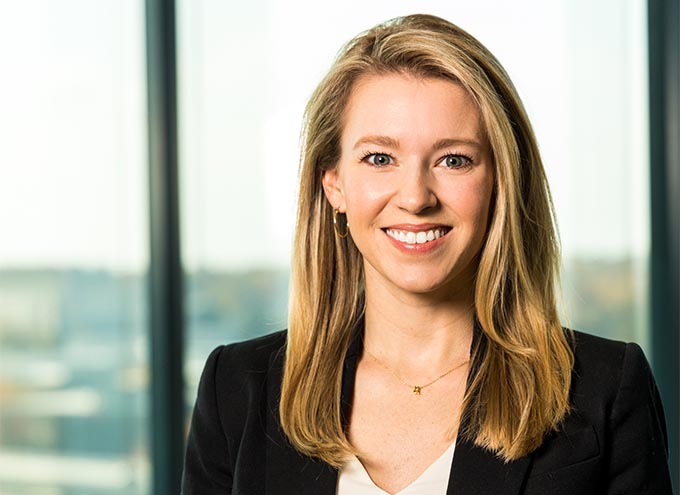Investment Advisers: Prepare for New Anti-Money Laundering Rules
April 1, 2024
At a glance:
- The main takeaway: On February 15, 2024, the U.S. Treasury Department’s Financial Crimes Enforcement Network (FinCEN) issued a Notice of Proposed Rulemaking (NPRM) that will require certain investment advisers to establish Bank Secrecy Act (“BSA”) and Anti-Money Laundering/Countering the Financing of Terrorism (“AML/CFT”) programs, report suspicious activity to FinCEN, and meet BSA recordkeeping requirements.
- Impact on your business: The proposed rule would apply to investment advisers registered with the U.S. Securities and Exchange Commission (SEC) and exempt reporting advisers. It would delegate examination authority for this rule to the SEC, given the SEC’s expertise in the regulation of investment advisers and experience in examining other financial institutions with respect to AML/CFT responsibilities.
- Next steps: If adopted as proposed, the rule would impose significant new compliance responsibilities on asset managers, including those that currently implement voluntary AML programs. Aprio’s Forensic Services team can assist you with conducting an AML independent assessment and identifying any areas that may need additional review or are currently in non-compliance.
Schedule a consultation
The full story:
To address illicit finance risks in the investment adviser industry, FinCEN is proposing to apply certain AML/CFT requirements to certain investment advisers. Currently, there are no federal or state regulations requiring investment advisers to maintain AML/CFT programs, although some investment advisers may already do so if they are working on behalf of financial institutions, registered broker-dealers, or mutual funds.
The proposed regulation aims to target the thousands of investment advisers that oversee the investments of trillions of dollars into the U.S. economy by amending Chapter X of Title 31 of the Code of Federal Regulations; this amendment would add “investment adviser” to the definition of “financial institution” at 31 CFR 1010.100(t). Comments on the proposed rule are due by April 15, 2024.
What is the proposed rule?
Here is a quick breakdown of the most pertinent changes included in the proposed rule:
- Investment advisers will now be categorized into two types:
- Those registered or required to register with the SEC (such as investment advisers, RIAs, etc.) and
- Investment advisers that report to the SEC as Exempt Reporting Advisers (ERAs) pursuant to the Investment Advisers Act of 1940, as amended (Advisers Act),and the rules thereunder.
- Requires investment advisers to:
- Implement an AML/CFT program.
- File Suspicious Activity Reports (SARs) with FinCEN.
- Keep records related to the transmittal of funds (Recordkeeping and Travel Rule).
- Adhere to information-sharing provisions between and among FinCEN, law enforcement government agencies, and certain financial institutions (Sections 314(a) and 314(b) of the USA PATRIOT Act).
Are there any exceptions?
The proposed rules come with a few notable exceptions to be mindful of. Currently, FinCEN is not proposing including a customer identification program (CIP) requirement in the rules; it is also not including an obligation to collect beneficial ownership information for legal entity customers within the AML/CFT program requirements.
The proposed regulations would also not require investment advisers to:
- File reports for the receipt of more than $10,000 in cash and negotiable instruments using the joint FinCEN/Internal Revenue Service Form 8300 (Form 8300). Instead, they are required to file a Currency Transaction Report (CTR) for a transaction involving a transfer of more than $10,000 in currency by, through, or to the investment adviser, unless subject to an applicable exemption.
- Apply AML/CFT program or SAR reporting requirements to mutual funds as they are already defined as “financial institutions” under the BSA (31 CFR 1010.100(t)(10)).
FinCEN is proposing to delegate its examination authority to the SEC, given the SEC’s expertise in the regulation of investment advisers and the existing delegation to the SEC of authority to examine brokers and dealers in securities (broker-dealers) and certain investment companies.
The bottom line
When you are looking for guidance to help assess your BSA/AML program, experience matters. Aprio’s Forensic Services team members have the knowledge, skill, experience, training, and education to support our financial and technology clients in developing strong AML procedures.
Consider hiring Aprio for a BSA/AML assessment to know if you comply with FinCEN’s regulations and lower organizational risk due to AML/CFT activities.
Click here to schedule a consultation with our team.
Related Resources/Assets/Aprio.com articles/pages
Forensic & Investigative Services Overview
Final-Ruling on Beneficial Ownership
What Financial Institutions need to know about Suspicious Activity Reports
Recent Articles
About the Author
Haley Beatty
Haley Beatty is a forensic accounting and financial crime reporting expert. Her specialties include white-collar crime investigations, fraud detection, anti-money laundering (AML) and know your client (KYC) investigations, and regulatory compliance. Haley has advised companies ranging from small startups to some of the world’s largest financial institutions and has led teams of over 500 investigators. She works closely with clients to paint a complete picture of fund movement and leverages technology, analytics, and data visualization to help clients effectively identify issues and monitor risks.
(470) 567-5230
Ben Gregory
As a Manager for Aprio’s Litigation Support & Forensic Accounting Services team, Ben leverages his wide knowledge base to provide services in forensic accounting, litigation support and BSA/AML advisory. Ben provides a wide range of forensic accounting services including damage calculations, matrimonial forensics and fraud investigations, plus consults on AML compliance matters for FinTechs and Financial Institutions working in the cryptocurrency markets.
Ben is a Certified Public Accountant (CPA) that is Certified in Financial Forensics (CFF), Certified Fraud Examiner (CFE), Certified Forensic Accountant (CRFAC) and Certified Anti-Money Laundering Specialist (CAMS).
Stay informed with Aprio.
Get industry news and leading insights delivered straight to your inbox.

